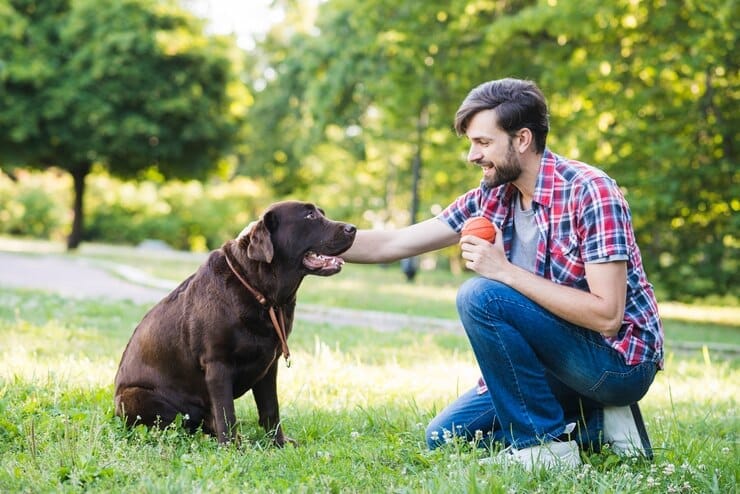Many dog owners are unsure about how much their pets should weigh. While it's important to ensure that your dog is at a healthy weight, determining what that weight should be can be a challenge. Factors such as breed, age, and activity level can all play a role in determining the ideal weight for your dog. So, "How Heavy Should My Dog Be?" It's a question that requires careful consideration and understanding of various factors to ensure your furry friend maintains optimal health and well-being.
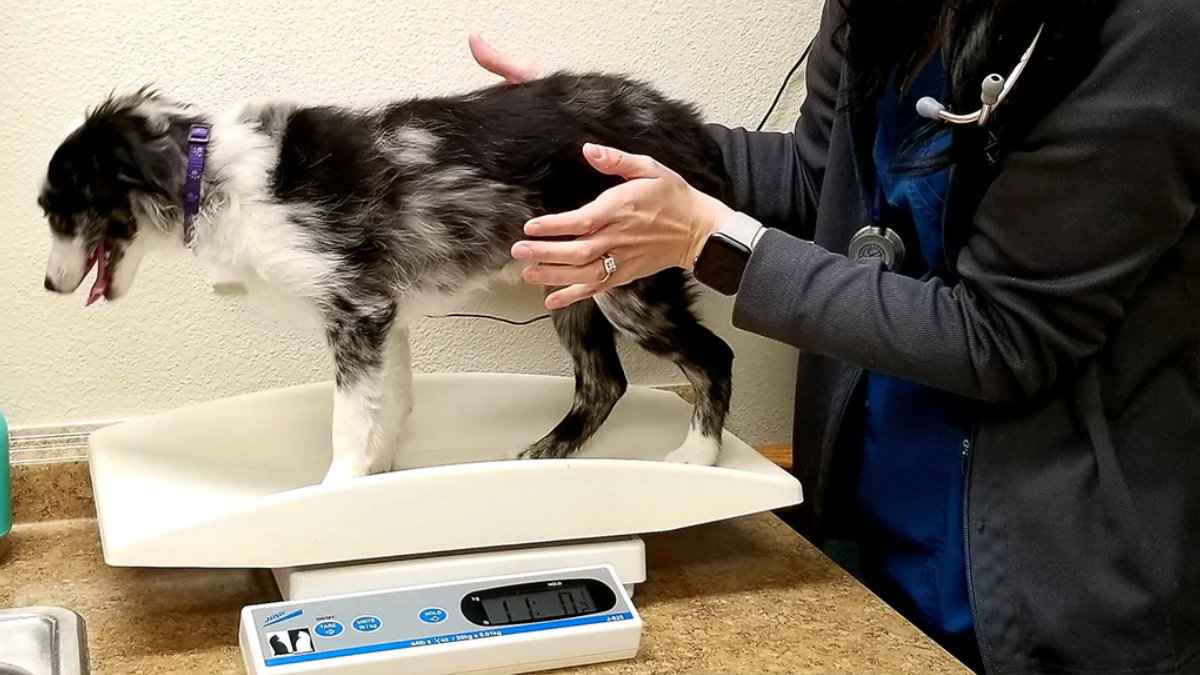
Understanding the weight ranges of different dog breeds can be a helpful starting point. While there is some variation within breeds, most breeds have a general weight range that is considered healthy. However, it's important to keep in mind that individual dogs can vary widely within these ranges. Additionally, mixed-breed dogs may not fit neatly into any particular breed category, making it even more challenging to determine the ideal weight.
Factors such as diet, exercise, and overall health can also influence your dog's weight. Even within a breed, two dogs with the same activity level and diet can have different weights. Assessing your dog's body condition can help you determine whether your pet is at a healthy weight. By feeling for your dog's ribs and checking for a visible waist, you can get a sense of whether your dog is underweight, overweight, or at a healthy weight.
Key Takeaways
- Understanding breed weight ranges can provide a helpful starting point for determining your dog's ideal weight.
- Factors such as diet, exercise, and overall health can all influence your dog's weight, even within a breed.
- Assessing your dog's body condition can help you determine whether your pet is at a healthy weight.
Understanding Dog Breeds and Weight Ranges
Breed-Specific Weight Standards
Different dog breeds have different weight ranges, and it's essential to understand the breed-specific weight standards to ensure that your dog is healthy and happy. Some breeds are naturally heavier than others, and some breeds have a broad range of acceptable weights.

For example, the Labrador Retriever breed has a weight range of 55-80 pounds for males and 45-70 pounds for females. On the other hand, the Chihuahua breed has a weight range of 2-6 pounds for both males and females.
It's important to note that breed-specific weight standards are not set in stone. Some dogs may fall outside the weight range, but as long as they are healthy and happy, their weight is acceptable.
Small, Medium, and Large Breed Classifications
Dogs are also classified into small, medium, and large breed categories based on their weight. Small breeds typically weigh less than 20 pounds, medium breeds weigh between 20-60 pounds, and large breeds weigh over 60 pounds.
Small breeds like the Pomeranian and Chihuahua have a higher metabolism and require fewer calories to maintain a healthy weight. On the other hand, large breeds like the Great Dane and Saint Bernard have a slower metabolism and require more calories to maintain a healthy weight.
It's important to keep in mind that weight ranges and classifications are just a guide, and each dog is unique. Factors like age, activity level, and overall health can influence a dog's weight. Regular veterinarian check-ups and monitoring your dog's weight can help ensure that they are maintaining a healthy weight.

Factors Influencing Your Dog's Weight
When it comes to determining the ideal weight for your dog, there are several factors to consider. Here are some of the most important factors that can influence your dog's weight:
Age and Growth Patterns
Just like humans, dogs go through different growth stages throughout their lives. Puppies, for example, need to gain weight quickly to support their growing bodies. However, as dogs age, their metabolism slows down and they may become less active, leading to weight gain.
Diet and Nutrition
The type and amount of food your dog eats can have a significant impact on their weight. Feeding your dog too much or giving them too many high-calorie treats can quickly lead to weight gain. On the other hand, feeding your dog a balanced and nutritious diet can help them maintain a healthy weight.
Exercise and Activity Levels
Regular exercise is essential for keeping your dog healthy and maintaining a healthy weight. Dogs that don't get enough exercise are more likely to become overweight or obese. Providing your dog with plenty of opportunities to play and be active can help them stay fit and healthy.
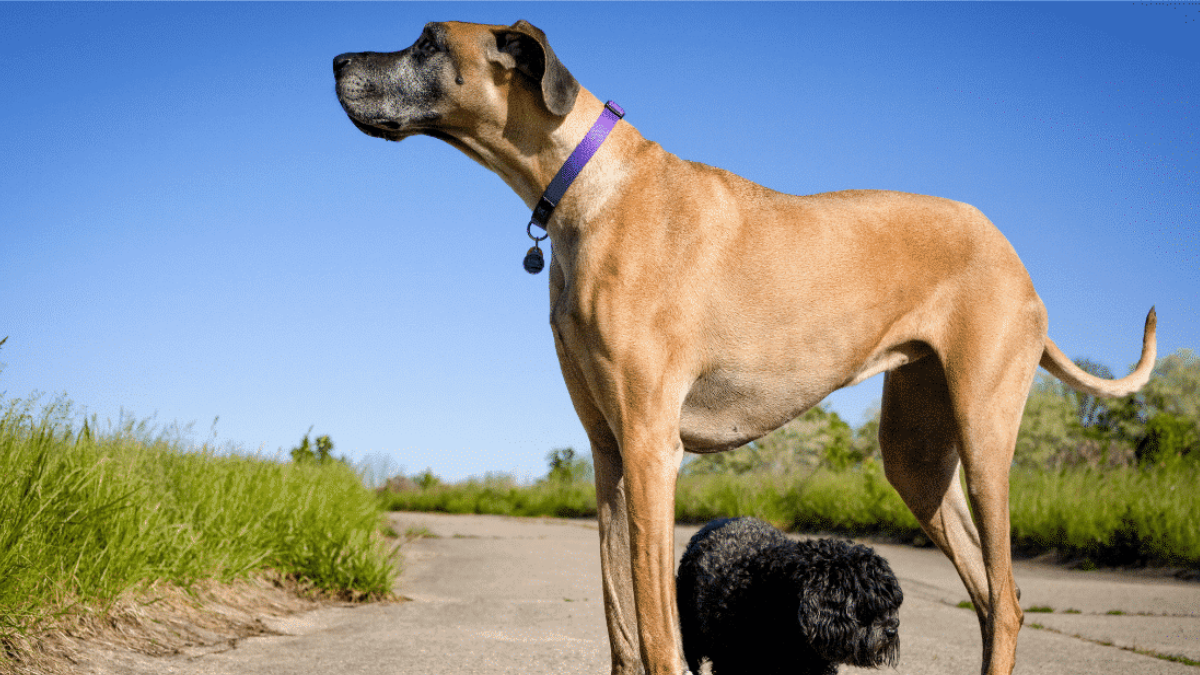
Genetics and Metabolism
Just like humans, some dogs are naturally predisposed to being overweight or obese. Certain breeds, such as Labrador Retrievers and Beagles, are more prone to gaining weight than others. Additionally, some dogs may have slower metabolisms, making it more difficult for them to maintain a healthy weight.
By considering these factors, you can help ensure that your dog maintains a healthy weight throughout their life. If you're unsure about your dog's ideal weight, consult with your veterinarian for guidance.
Assessing Your Dog's Body Condition
Body Condition Scoring System
The body condition scoring system (BCS) is a widely used method for assessing a dog's weight and body composition. It is a subjective evaluation that involves feeling the dog's body and looking for certain physical characteristics. The BCS ranges from 1 to 9, with 1 being extremely thin and 9 being extremely obese. A score of 4 or 5 is considered ideal for most dogs.
To use the BCS, the evaluator should feel the dog's ribs, spine, and hips. In a dog with an ideal body condition, the ribs should be easily felt but not visible, the spine should be easily felt but not prominent, and the hips should be easily felt but not protruding. A dog that is too thin will have visible ribs, a prominent spine, and hip bones that are easily visible. A dog that is overweight or obese will have difficulty feeling the ribs, spine, and hips.
Visual and Physical Examination Methods
In addition to the BCS, other visual and physical examination methods can be used to assess a dog's body condition. These include measuring the dog's waistline, looking for a tucked abdomen, and observing the dog's overall body shape.
To measure the dog's waistline, the evaluator should place their hands on either side of the dog's waist and try to touch their fingers together. If they can touch it, the dog is likely overweight. If they cannot touch, the dog is likely too thin.
To look for a tucked abdomen, the evaluator should stand behind the dog and look down at their waistline. In a dog with an ideal body condition, the waistline should be narrower than the chest and hips. If the waistline is wider than the chest and hips, the dog is likely overweight.
Observing the dog's overall body shape can also provide clues to their body condition. A dog with an ideal body condition will have a slightly curved waistline, a visible abdominal tuck, and a smooth, flowing shape. A dog that is too thin will have a bony appearance and a lack of muscle tone. A dog that is overweight or obese will have a round, bulging appearance and excess fat around the neck, chest, and hips.
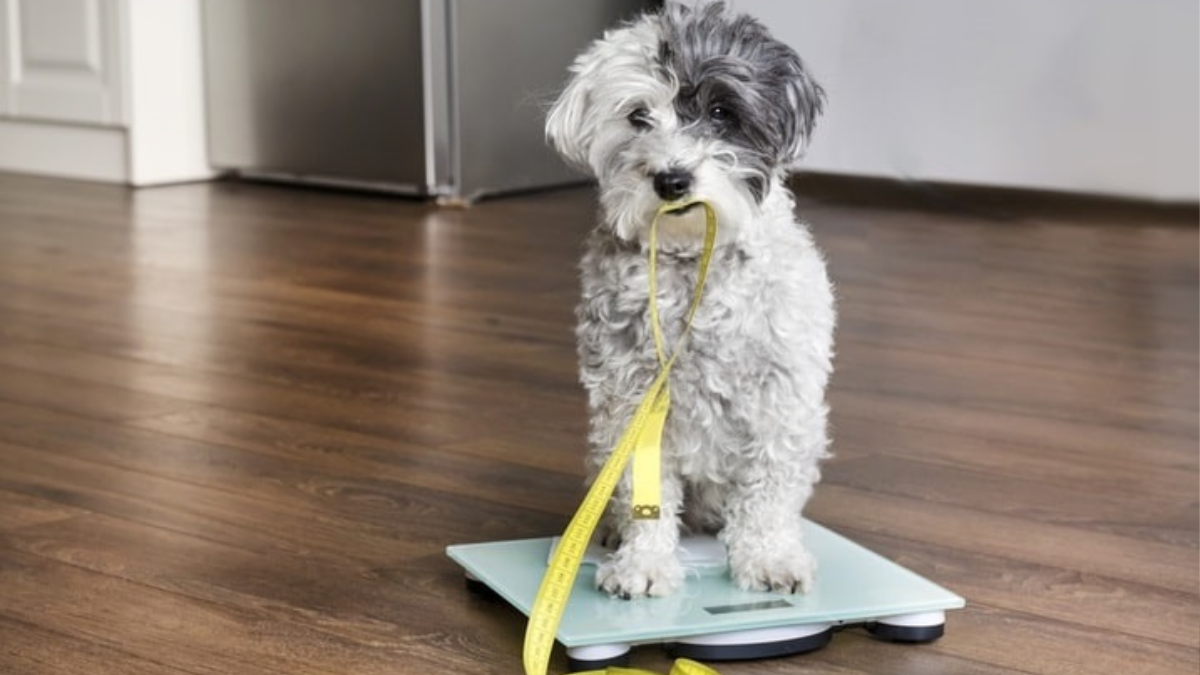
By using a combination of these visual and physical examination methods, dog owners can get a better sense of their dog's body condition and make any necessary adjustments to their diet and exercise routine.
Health Risks of Improper Weight
Obesity and Associated Diseases
Obesity is a serious health concern for dogs as it increases the risk of various diseases such as diabetes, heart disease, and arthritis. Dogs who are overweight or obese are also more likely to develop respiratory problems, including difficulty breathing and decreased stamina. Additionally, obesity can negatively affect a dog's overall quality of life, leading to a shorter lifespan and reduced mobility.
Underweight Concerns and Complications
Underweight dogs are at risk of developing a variety of health complications, including malnutrition, anemia, and weakened immune systems. They may also experience decreased energy levels and a lack of appetite, which can lead to further weight loss and health concerns. Furthermore, underweight dogs may be more susceptible to injuries and illnesses due to their weakened physical state.
Maintaining a healthy weight is crucial for a dog's overall well-being. Pet owners should consult with their veterinarian to determine the appropriate weight range for their dog's breed and age. By monitoring their dog's weight and providing a balanced diet and regular exercise, pet owners can help their furry friends live long, healthy lives.
Maintaining a Healthy Weight
To ensure that your dog stays healthy and happy, it is important to maintain a healthy weight. Here are some tips to help you keep your dog at a healthy weight.
Balanced Diet Planning
A balanced diet is essential for maintaining a healthy weight. It is important to feed your dog a diet that is appropriate for their age, breed, and activity level. A diet that is high in fat and calories can lead to obesity, which can cause a variety of health problems.
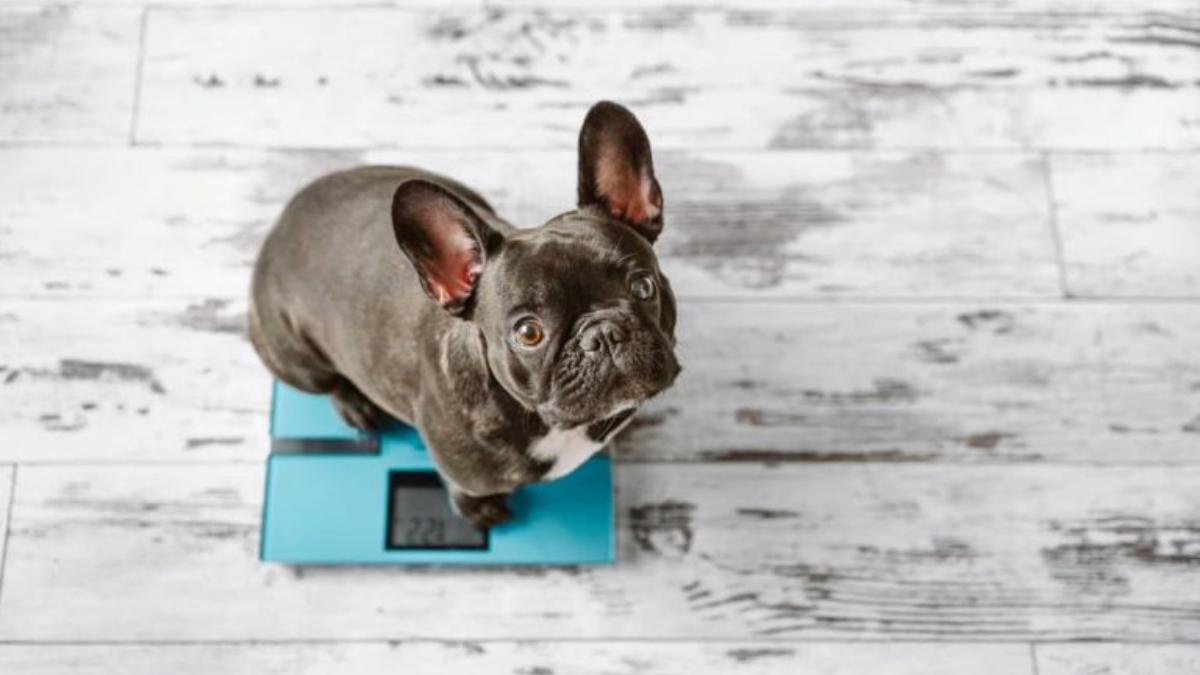
To ensure that your dog is getting the right nutrients, you should consult with your veterinarian. They can help you develop a balanced diet plan that meets your dog's nutritional needs.
Regular Exercise Regimen
Regular exercise is important for maintaining a healthy weight. Dogs that are not active are more likely to become overweight or obese. Regular exercise can help your dog burn off excess calories and maintain a healthy weight.
The amount of exercise your dog needs will depend on their age, breed, and activity level. It is important to consult with your veterinarian to develop an exercise regimen that is appropriate for your dog.
Veterinary Checkups and Monitoring
Regular veterinary checkups are important for monitoring your dog's weight and overall health. Your veterinarian can help you determine if your dog is at a healthy weight and if any changes need to be made to their diet or exercise regimen.
Monitoring your dog's weight at home can also help you detect any changes in their weight. If you notice that your dog is gaining or losing weight, it is important to consult with your veterinarian.
By following these tips, you can help your dog maintain a healthy weight and live a happy and healthy life.
Weight Management for Special Conditions
Pregnancy and Nursing
During pregnancy and nursing, a dog's nutritional needs change significantly. It's important to consult with a veterinarian to determine the appropriate weight range for your dog during this time. Generally, pregnant dogs should gain weight gradually throughout their pregnancy, with the majority of weight gain occurring during the last few weeks. Nursing dogs may require up to twice their normal caloric intake to support milk production.

Senior Dogs
As dogs age, their metabolism slows down and they may become less active. This can lead to weight gain if their food intake is not adjusted accordingly. Senior dogs may also have health conditions that require a specialized diet. It's important to work with a veterinarian to determine the appropriate weight range and dietary needs for your senior dog.
Dogs with Chronic Conditions
Dogs with chronic conditions such as diabetes, heart disease, or kidney disease may require a specialized diet to manage their condition. It's important to work with a veterinarian to determine the appropriate weight range and dietary needs for your dog with a chronic condition. In some cases, weight loss may be recommended to improve their overall health.
Conclusion
In conclusion, the question of "How Heavy Should My Dog Be?" is crucial for their overall health and happiness. Monitoring your dog's weight and consulting with a veterinarian are key steps in ensuring they maintains an ideal weight. By considering factors such as breed, age, and activity level, you can determine the appropriate weight range for your furry companion.
Maintaining an optimal weight is essential to prevent health issues such as obesity, joint problems, and heart conditions. Through a balanced diet and regular exercise tailored to your dog's needs, you can help them achieve and sustain a healthy weight. It's important to remember that every dog is unique, so adjustments to their care may be necessary over time.
Prioritizing your dog's weight management contributes to their overall well-being and longevity. By staying proactive and responsive to any changes in weight, you can ensure they lead a happy and healthy life. Ultimately, the goal is to provide your dog with the best possible care, including maintaining an appropriate weight, to promote their overall health and happiness.
Frequently Asked Questions
- What factors determine the ideal weight for my dog?
- The ideal weight for a dog depends on several factors such as breed, age, sex, and body composition. It is essential to consult with a veterinarian to determine the ideal weight for your dog based on these factors.
- How can I tell if my dog is at a healthy weight?
- You can tell if your dog is at a healthy weight by checking its body condition score (BCS). A dog with an ideal BCS should have a visible waistline, and you should be able to feel its ribs without applying too much pressure. If you are unsure about your dog's weight, consult with a veterinarian.
- What are the weight ranges for different dog breeds?
- Different dog breeds have different weight ranges. For instance, a Chihuahua typically weighs between 2 to 6 pounds, while a Great Dane can weigh up to 200 pounds. Consult with a veterinarian or breed-specific weight charts to determine the ideal weight range for your dog.
- How should a dog's weight change as it ages?
- A dog's weight should change as it ages. Puppies require more calories and nutrients to support their growth and development, while older dogs may require fewer calories to maintain their weight. Consult with a veterinarian to determine the appropriate diet and feeding schedule for your dog based on its age.
- What is the best method to estimate my dog's weight?
- The best method to estimate your dog's weight is by using a scale. However, if a scale is not available, you can estimate your dog's weight by measuring its body length and chest girth and using a weight chart or an online calculator. Consult with a veterinarian for guidance on estimating your dog's weight.
- How does a dog's body condition score relate to its ideal weight?
- A dog's body condition score (BCS) is a numerical rating system used to assess its body composition. A dog with an ideal BCS should have a healthy weight. If a dog's BCS is too high or too low, it may be underweight or overweight, respectively. Consult with a veterinarian to determine the ideal BCS for your dog.
